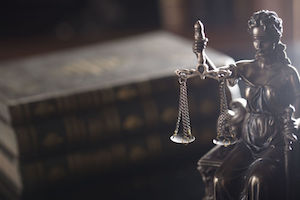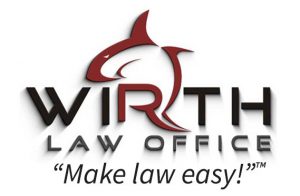Everything An Attorney Goes To School For And Then Practices For Years To Learn, You Will Be Responsible For Knowing If You Don’t Hire an Attorney.
Video Transcribed: My name is Ryan Cannonie, I am the Tahlequah criminal defense attorney for Wirth Law Office in Cherokee County.
And I’ve done kind of a series of videos, and this is going to be a continuation of that, talking about the criminal justice system and how everything kind of unfolds, the step-by-step guide so you can be better aware of what’s coming next.
Why do I need an attorney for this? What’s going to happen when I show up to court? So we’ve talked about being arrested. We’ve talked about bond.
We’ve talked about initial appearance, sounding dockets. Next step is where things kind of split. So if you have a misdemeanor case, after you’re sounding dockets, you’ll be moving either to a jury trial sounding docket or a jury trial or a non-jury trial.
Now, that jury trial sounding docket, that’s just another way of saying you’ve got a docket before your jury trials, a court date before your jury trial. It’s the date that motions are exchanged, there’s argument, any type of discovery, meaning police reports, witnesses, all that stuff is exchanged back and forth.
There’s a lot of procedure to it, a lot of rules of evidence that come into play there. If you don’t have an attorney, you’re going to be at a substantial disadvantage when the state is filing its motions, not knowing how to respond to them. Your next step, from jury trial sounding document anyway, your next step would be a jury trial.
And just to kind of explain the difference between jury and non-jury, it’s basically what it sounds like. Jury trial is where you have a jury of your peers. For a misdemeanor, you’re not going to have a full 12-person jury like you see on TV. You’ll have less than 12.
You’ll also be responsible for knowing everything an attorney knows. So you will be responsible for knowing how to make proper objections, how to do your jury selection process. What do you look for in jurors? What do you avoid in jurors? What is legal in jury selection process?
 You will be responsible for knowing what questions you can and can’t ask, how you ask questions, the exact form that is used.
You will be responsible for knowing what questions you can and can’t ask, how you ask questions, the exact form that is used.
Everything an attorney goes to school for and then practices for years to learn, you will be responsible for knowing if you don’t hire an attorney.
At the end of that, of course, the jury makes its decision and recommends a sentence.
Sometimes the judge might sentence you right then, if you’re found guilty. Sometimes they’ll continue it out for sentencing. It just kind of depends on how they feel and what the crime is and what the recommendation is. And that’s a misdemeanor.
Now, felony, your next step is going to be a preliminary hearing from your status, your disposition docket, your plea offer docket. Your next step, if you can’t agree with a plea or a dismissal with the state, is to go to a preliminary hearing.
Now, a preliminary hearing, the best way to kind of describe that is a mini trial. And when I say that, there’s no jury. It’s all the judge’s decision. They will listen to evidence.
Witnesses will be called. State will get to put on all their evidence, all their witnesses, all their exhibits that they want to. Your attorney or you will be required to, once again, follow all the rules of court, make objections, cross-examine witnesses.
I’ve seen a couple people represent themselves in preliminary hearings. It is like watching a train wreck on top of a train wreck. It’s not anything against anyone. It’s just knowing what to do in law, in a court, and in criminal cases is something that takes not only education and training but also a lot of practice.
Sometimes prosecutors who are very new to the practice of law have issues as well. Even though they know the law, they know the procedures, they get into the courtroom and they even have issues. So someone who’s never been experienced in any of that is definitely going to have problems.
So at a preliminary hearing, the judge will either dismiss the case if the prosecutor doesn’t prove what they need. By the way, they are not proving beyond a reasonable doubt. They are proving a much lower burden that your attorney can explain to you and explain what the situation there is.
And if they meet that burden, if they prove what they need to prove, then the next step, the judge will set you for a district court arraignment. And that’s kind of like your first arraignment, except a lot of times it’s a little more official. You’re with a different judge.
At that point, a lot of times, they’ll maybe read your charges to you again. Any changes to your charges after the preliminary hearing, they’ll make you aware of those.
Then you’re set for either a jury trial or possibly a plea if you’ve, after your preliminary hearing, you’ve decided you’re going to take the plea offer if the prosecutor’s still offering it. Either plea or you go to trial. One of the two at that point.
The other option I had mentioned earlier with a misdemeanor is non-jury trial. That’s also available for felonies, but you’re going to really want to talk to your attorney before you waive any type of jury trial.
There’s a lot of strategy involved there and a lot of a risk and reward, depending on what the situation is. So a non-jury trial’s what it sounds like. There’s no jury. The judge listens to all the evidence on both sides and then makes a decision if the person is guilty.
So that’s kind of where criminal cases go. There’s a lot that I haven’t described these videos. There’s things like motions to suppress. Motions to suppress is a motion filed to, based on some legal issue, suppressing evidence so the evidence can’t be used against you.
There’s what’s called a motion to quash, and you can try to quash an information. And what that means is you alleged that there’s some issue with the allegations against you.
Not the allegations itself a lot of times, but how they were filed, the state’s ability to file in the way they did, the evidence that was brought forward doesn’t meet the filing that they have, and try to get the case dismissed that way.
You can argue a whole bunch of different things. Right now, one of the things being argued more often than not is jurisdiction due to Native American status.
These are all things that come into play. Whether we’re talking about misdemeanors, whether we’re talking about felonies, there’s all types of rules and different codes and regulations that govern how the court process works.
And if you’re not an attorney and even if you are an attorney and you’re not familiar with the criminal system, then you could be at a real disadvantage. So if you are looking for an attorney, if you have a criminal matter, if you’re concerned about your case, then please give us a call.








